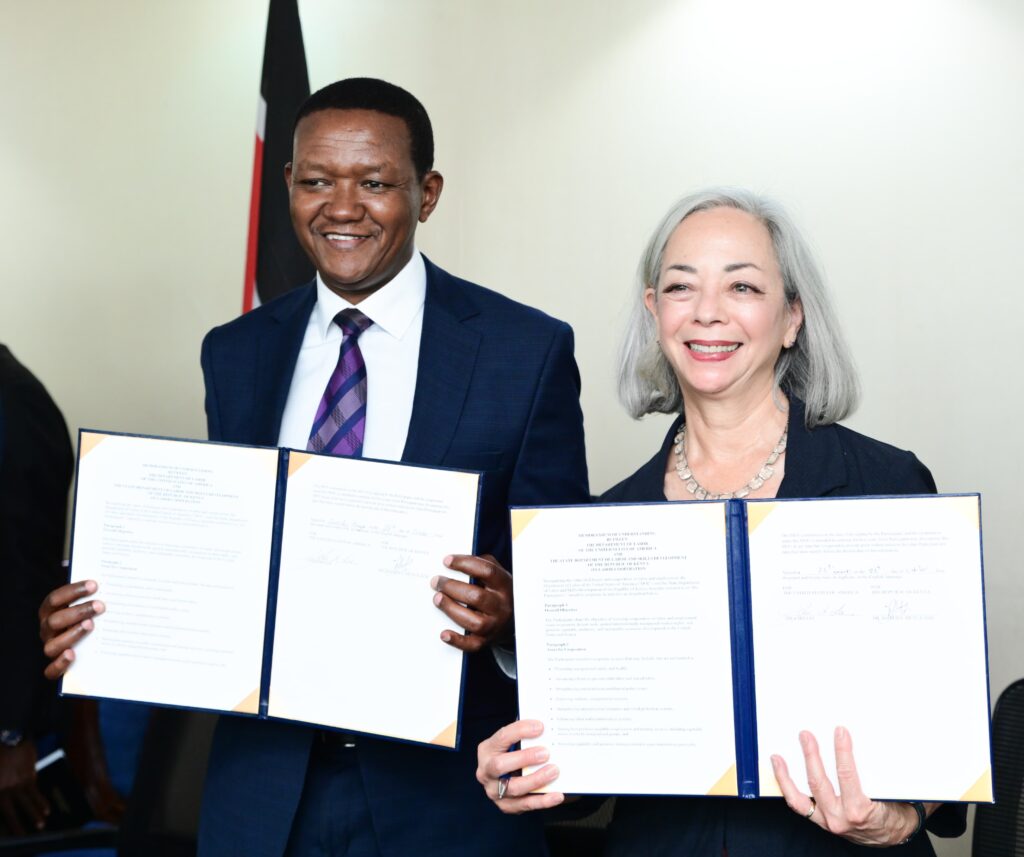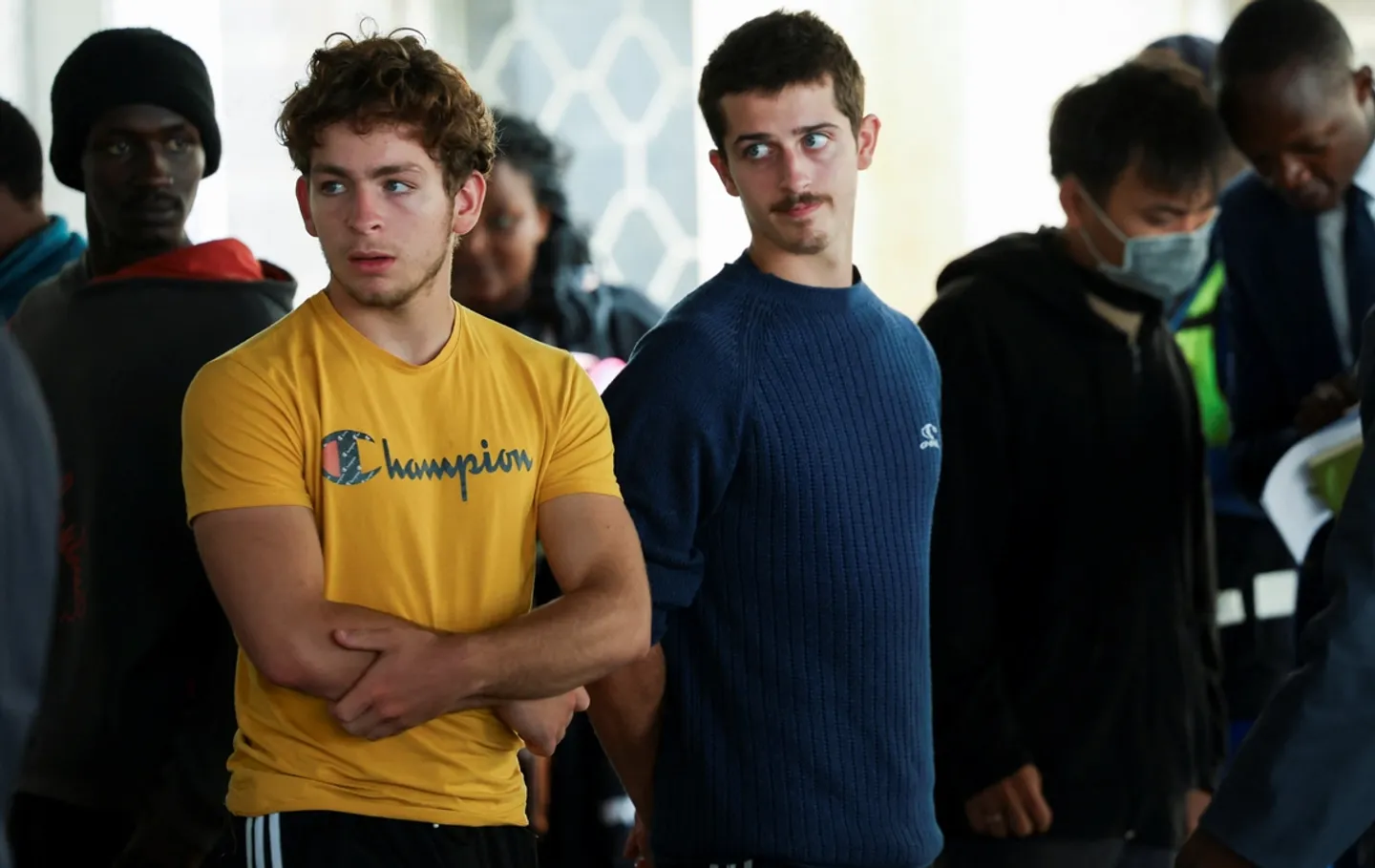Kenya and the United States have signed a Memorandum of Understanding (MoU) aimed at bolstering labour cooperation and safeguarding the rights of Kenyans working in America. This agreement is viewed as a significant step toward promoting fair labour practices by improving employment conditions and enhancing worker protections in both nations.
The MoU was signed by Labour Cabinet Secretary Alfred Mutua, Principal Secretary Shadrack Mwandime, and U.S. Deputy Undersecretary for the Bureau of International Labor Affairs, Thea Mei Lee. “Our goal with this agreement is to prioritize occupational health and safety, creating a healthier and safer working environment for all Kenyan workers,” stated Mutua. He emphasized Kenya’s intention to adopt best practices from the U.S., particularly in managing labour relations and ensuring workplace health.
The MoU outlines several areas of cooperation, including occupational safety, health standards, prevention of child and forced labour, workers’ compensation systems, and social protection frameworks. Mutua noted that it aligns with Kenya’s commitment to providing strong social protections for workers, enhancing productivity, and promoting decent work opportunities.
Furthermore, the agreement aims to support workers’ compensation and unemployment insurance, crucial for sustainable economic development. The U.S. remains a key source of income for Kenya through diaspora remittances, with the Central Bank of Kenya reporting that, in September, half of the remittances received came from the U.S.
In addition to this agreement, CS Mutua has called for high-quality technical training for the youth as Kenya begins exporting labour to tackle unemployment. During a recent job interview supervision for labour migrants heading to Qatar, he expressed concern over the high failure rate in practical assessments, with nearly 80% of candidates unable to meet technical requirements. “Technical training is essential. Fields like plumbing, masonry, and electrical work are in high demand, and only quality training will prepare our youth for success,” he said.
The interviews, which began at the Kenyatta International Convention Centre (KICC) and Kabete National Polytechnic, attracted nearly 20,000 candidates for just 3,000 positions. The ministry clarified that the ongoing interviews are intended to accommodate more applicants for technical roles.
CS Mutua reiterated that the process is free of charge, warning against corruption. He noted that while selected candidates will need to cover costs for medical tests and travel documents, the Ministry will assist those without passports if hired.
Additionally, the ministry plans to offer 5,000 more jobs in the coming weeks to expand employment opportunities abroad. “Kenyans seek a hand up, not a handout. We are dedicated to creating more international job openings and exploring ways to decentralize the hiring process for greater accessibility across Kenya,” he concluded.





